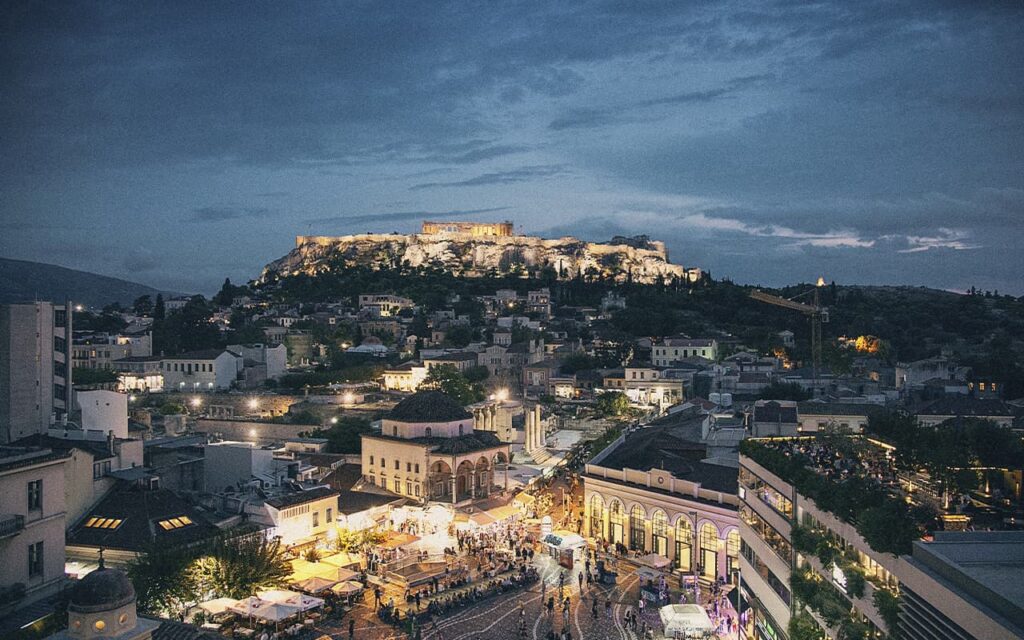Greece is one of the most amazing and unique countries in the world.
The history of Greece dates back to ancient times. Undoubtedly, Greek civilization is of great importance for the entire modern world. World art, science, politics, philosophy, and languages are closely linked to the culture and history of Greece.
It is located in the south of Europe, on the Balkan Peninsula. The area, together with the islands adjacent to the coast of Asia Minor, is almost 132,000 km². The population is more than 10 million people. The capital of Greece, Athens, is one of the oldest and most beautiful cities in the world, founded in about the 7th millennium BC.
Ancient Greece consisted of about 1,500 separate city-states, the largest of which was Athens. The “Golden Age” in the history of Greece is considered to be the 5th century BC. This period is primarily associated with the rise of this city-state.
The city of Athens is named after the Greek goddess. It was she who gave the city the best gift – an olive tree. Poseidon competed with her and gave the citizens water. At first they were happy, but when they found out that it was salty, Athena was recognized as the winner.
Greece is known for its beautiful nature, fascinating history, and rich culture. This relatively small country has made a huge contribution to world culture: medicine, politics, art, literature, and theater. To this day, the ancient Greek myths serve as a source of inspiration for many people, are studied and retold.
It is rightly called the “cradle of European civilization”, the birthplace of democracy and philosophy, mathematics and physics, as well as the Olympic Games. Ancient archaeological sites and a rich cultural heritage make Greece one of the most mysterious countries in Europe. Interestingly, the official name of the country is Hellas. The Greeks themselves use the word “Greece”, which has Latin roots, only in communication with foreigners.
It was in ancient Greece that the first philosophical concepts were formulated, which laid down the fundamental knowledge of the universe that is used by modern science.
The Greek historian Herodotus literally became the “father of history”; his historical works are the models for the works of subsequent generations of historians.
The Greek physician Hippocrates became the “father of medicine,” and his famous “Hippocratic Oath” still expresses the moral and ethical principles of a doctor’s behavior.
The playwright Aeschylus became the creator of theatrical drama, and his contribution to theater art and the development of theater is enormous.
As well as the enormous contributions of the Greeks Archimedes and Pythagoras to the development of mathematics. And the philosopher Aristotle can be called the “father of science” in the broadest sense of the word, since it was Aristotle who formulated the fundamental principles of scientific knowledge of the world.
Greece is filled with various attractions, many of which date back to ancient times. In Greece – in Athens or Delphi, in Thebes or Meteora, on the holy mountain of Athos or in rocky monasteries – everything impresses with the richness of architecture and interesting sights.
The best examples of ancient Greek architecture, sculpture, and art are in some ways unsurpassed, and new generations of artists study them, and researchers are trying to unravel the mystery of their harmony and aesthetic impact. Europe has been returning to this great ancient heritage time and again in its cultural and political development.
An ancient legend about the creation of the world says that Greece appeared when God sifted the earth and threw the stones left in the sieve over his shoulder. They became the foundation of this country.
Greece has more than 2,000 islands, of which almost 200 are inhabited by people. The most famous is the island of Crete, it is the largest. The whole history, culture and modern life of this island is woven out of paradoxes. This is its magnetic power and magic. In fact, the history of Greece and Greek civilization begins on the island of Crete in about the sixth millennium BC, in the Neolithic era.
Perhaps the most interesting thing about Crete is its history. After all, this island was the birthplace of the oldest known civilization in Europe, the Minoan civilization. It originated more than 4,000 years ago and was so highly developed that archaeologists are still finding its remains. We are talking about ancient artifacts: dishes, weapons, works of art.
The ancient Greeks considered Crete to be the birthplace of Zeus. It was there that his mother, Rhea, gave birth to the future thunderer and hid him from his father, the titan Cronus, who devoured his children. Having given him to the nymphs for upbringing, Rhea rescued Zeus and he, already being the head of Olympus, returned to his homeland. According to legend, the kings of ancient Crete, including the most prominent one, Minos, descended from Zeus. It was his wife who gave birth to the minotaur, a monster with the head of a bull and the body of a man.
